Apple metaverse speculation is at an all-time high right now. This is largely because Apple has become considerably more open with its research. The company has spent decades working on metaverse tech that “just works”. And as you read on, you’ll discover how you can jump on board this new take on the metaverse.
Quick Menu:
- The Apple Metaverse Builds on a More Generalized Foundation
- What is Apple?
- What Is the Apple Metaverse?
- What Is Apple’s Metaverse Strategy?
- Apple’s Metaverse: A Digital Realm Shaped by Apple’s Future Products and Services
- Four Other Tech Giants That Are Competing With the Apple Metaverse
The Apple Metaverse Builds on a More Generalized Foundation
Discussing the Apple metaverse necessitates a closer look at the metaverse as a whole. Most people think of the metaverse as a 3D realm you enter through virtual reality (VR) headsets. And that is one part of the metaverse. But the metaverse is better conceptualized as a fully digital world that exists alongside the physical one. You can look through a door in a variety of different ways. The same is true when opening the door to the metaverse. Augmented reality (AR) glasses and even computers, phones, and game consoles can access elements of the metaverse in their own unique ways.
Persistence is a defining point of the metaverse, no matter how it’s accessed. Everyone can enter the same part of the metaverse in different ways. And what you do there will remain constant as well. If you move something in the metaverse, it remains moved. Buy something there, and it remains yours. Nobody knows how the metaverse will grow, as it’s still in active development. And people’s personal views on the metaverse shape it. You can discover the most important conceptualizations of the metaverse in the article “Metaverse Meaning; Different Ways of Defining the Metaverse”.
What is Apple?
The other side of Apple’s metaverse discussions is Apple itself. Today the company is perhaps best known for its mobile devices. The iPhone and iPad are generally credited for popularizing smartphones and tablets. But bringing new technologies into public awareness has been a mainstay of Apple since the very beginning. Apple was founded in 1976 to sell its newly developed personal microcomputer. They followed up on the Apple microcomputer with the Apple II. And this microcomputer would, in many ways, popularize the concept of home computing. However, increased competition would eventually cause Apple to struggle for financial stability.
But all of that changed in 1997 when Apple co-founder Steve Jobs returned to the company. He, along with the acquisition of NeXT, revamped Apple’s operating system. And this progress would continue into the mobile space with iOS. iOS, of course, would power the iPhone and iPad. The various projects quickly turned Apple into a company known for high-tech devices that “just work”. Apple’s strategy primarily revolves around bringing advanced technology to the public in a manner that doesn’t require extensive education or practice. This is one of the reasons why a metaverse Apple style is so enticing.
Video: The best of Apple. All in one. | Apple One
What Is the Apple Metaverse?
Apple’s metaverse is, technically, any implementation of the metaverse created by Apple. But in more practical terms, this means leveraging the company’s “just works” ethos into the virtual realm of the metaverse. Even people who’ve never heard of the concept before will find an Apple metaverse natural, intuitive, and ultimately easy to use.
People are probably using elements of the Apple metaverse right now without even realizing it. You’ll soon see that Apple has already shipped pieces of metaverse hardware and software with its mobile devices. But dedicated hardware like headsets is also part of Apple’s larger plan.
What Is Apple’s Metaverse Strategy?
Apple’s interest in the metaverse has been relative, if not overtly, apparent for a long time. They were arguably among the very first of the larger tech companies to start investigating it, with early prototypes dating back to the late 1980s. But it’s essential to remember that Apple’s strategy under Steve Jobs always meant sticking to the idea of technology that “just works”. Jobs had also conceived of something similar to the iPad and iPhone in the late 1980s. But he held off on a release until Apple could be sure that it was something the public could seamlessly integrate into their lives.
This is probably the same overall strategy at work with the Apple metaverse. When Apple releases dedicated metaverse devices, it must be intuitive and easy to use. But Apple is also working on a more gradual and seamless approach to augmented reality. As you’ll soon see, the company has already shipped advanced augmented reality tech within every modern iPhone and iPad. Likewise, Apple’s software libraries make it easy for developers to leverage that tech in their apps.
Apple will likely continue working on a slower integration of AR with mobile devices and a more targeted approach using headsets or glasses. And this is further aided by the company’s movement into a unified CPU design. Apple recently ported its desktop operating system from X64 to the ARM architecture used in the iPhone and iPad. And with that came some drastic redesigns of the underlying architecture used in Apple’s ARM chips. Apple now has ultra-portable CPUs and graphical processors which perfectly lend themselves to headsets. You can dive deeper into the specifics of Apple’s strategy in the article “Apple Metaverse Strategy: Apple’s Strategy for the Digital Universe”.
Apple’s Metaverse: A Digital Realm Shaped by Apple’s Future Products and Services
Much of the Apple metaverse is still in development. The company is almost certainly refining its metaverse implementations as much as possible before a focused release with new hardware. But that’s far from implying that the process hasn’t started yet. You can already see the early stages of Apple’s metaverse rollout with the following products and services.
Software (for Developers)
A software development kit (SDK) collects all the programming tools used to write software for specific environments. For example, most apps on Apple’s App Store were created using Apple’s iOS SDK and the Xcode integrated development environment. But many people don’t know that Apple already has augmented reality libraries ready for use within the iOS SDK. All of these AR functions currently leverage iPhone and iPad technologies. But it could easily be used with dedicated augmented reality hardware. Apple has essentially introduced developers to the Apple metaverse without explicitly labeling it.

Image attribution: Apple AR
Mobile AR
You’ve seen that Apple has already integrated augmented reality capabilities into its iOS SDK. But it’s essential to recognize that the code isn’t just sitting there for use in the future. Apple’s current iPhone and iPad line already have everything needed for augmented reality. Mobile AR might not feel totally immersive compared to dedicated headsets or glasses. But developers have been able to leverage iOS for some pretty impressive feats. In this sense, an early version of the Apple metaverse might well be in your hands right now. The App Store already has some great AR-related apps.
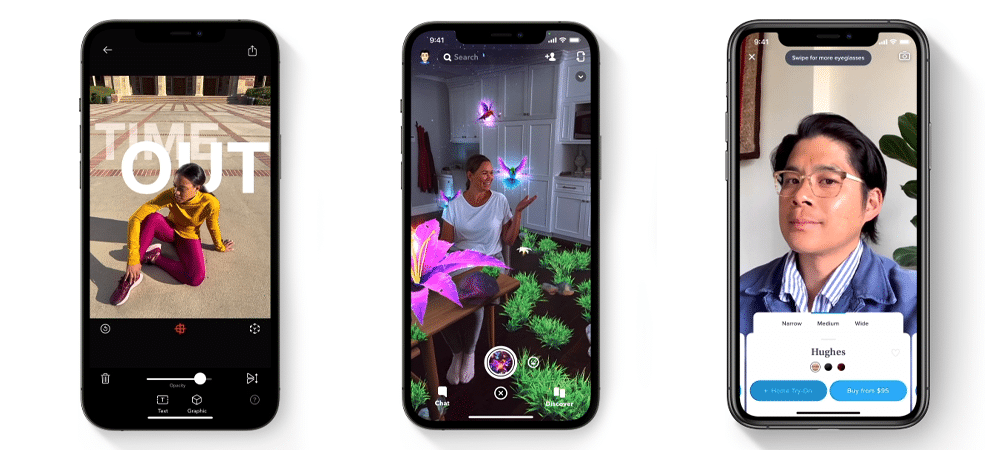
Image attribution: Apple AR
AR/VR (Mixed Reality)
The Apple metaverse seems to work through both augmented and virtual reality. Likewise, the company is working on dedicated hardware to target each method. The first release will be an AR/VR mixed reality headset. It’s essentially a “best of both worlds” approach to the metaverse. Apple’s A-series processors power it for performance roughly equivalent to a standard Mac, but separate chips will allow for additional metaverse-related capabilities. Visuals are handled by two micro-OLED displays running at 3,000 pixels per inch. A special trackable thimble might aid the device’s input for gesture-based control.
For more information about Apple’s AR Glasses, read “Apple VR Headset; What We Know About Apple VR Gear So Far”.
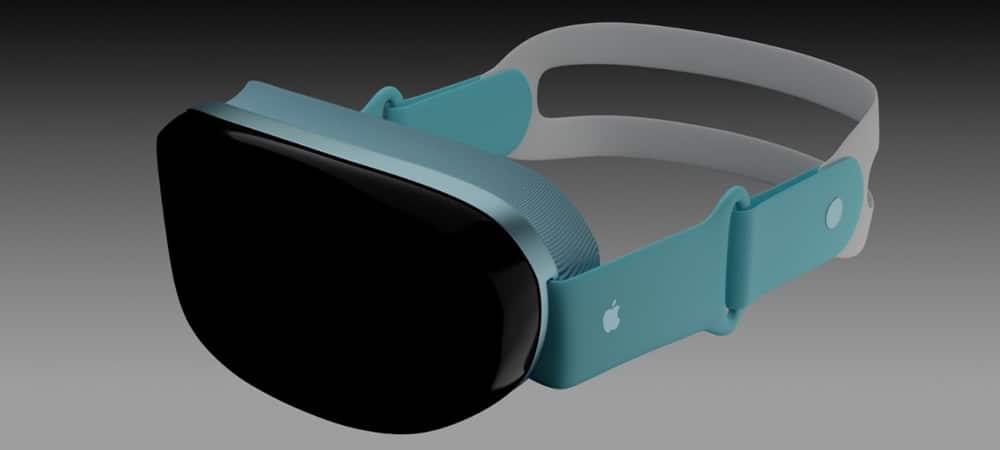
Image attribution: Apple Insider
Augmented Reality Glasses
It’s generally believed that Apple will offer augmented reality glasses as a follow-up to its AR/VR headset. The AR glasses will probably use Sony’s OLED microdisplays running at 1280×960. That’s roughly comparable to the resolution of a smaller laptop but contained within a form factor similar to standard prescription or sunglasses. The Apple metaverse glasses will be easy to control thanks to a particular gesture system. It’s generally thought that the glasses will pair with an iPhone rather than possessing a separate powerful processor like the VR/AR headset. This compromise provides the glasses with a slim form factor.
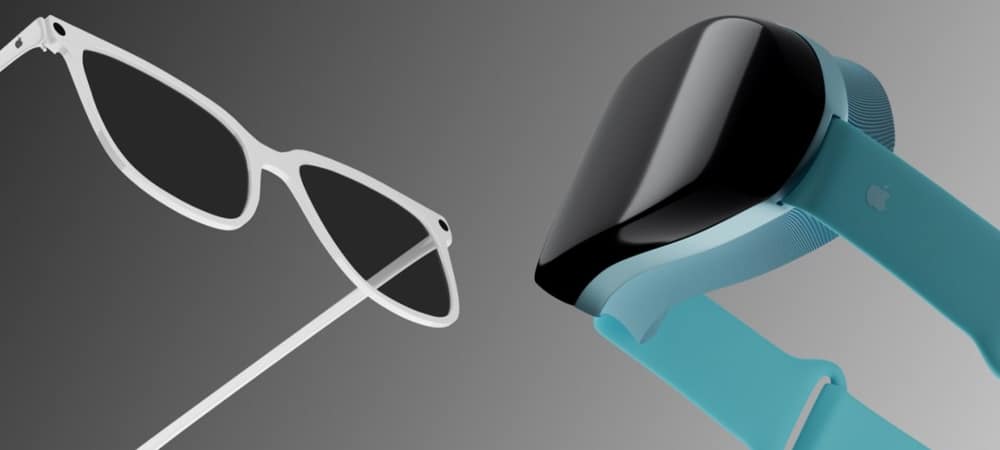
Image attribution: Apple Insider
Four Other Tech Giants That Are Competing With the Apple Metaverse
Part of the reason for the widespread interest in the Apple metaverse comes from its competitors. All of the other tech giants are working with the metaverse to some degree and have become metaverse companies. And, as you’ll see, each brings a unique twist or specialty to the table.
Facebook/Meta Is Leading the Way
Facebook’s rebranding to Meta took most people by surprise. But Mark Zuckerberg held the change-up as a sign of the company’s dedication to the metaverse. Sometime later, it’s safe to say that he was right. Meta has spearheaded most aspects of metaverse development.
The company’s Oculus headsets are one of the most popular ways to experience virtual reality. And they’ve been steadily working to make their Horizon metaverse platform both easy to use and develop content within. You can delve into the larger world of Meta’s metaverse in the article “Facebook Metaverse; Explained, Examples, Devices, Vision & Critics”.
Microsoft Offers a Unique Take on Augmented Reality
Microsoft has several active metaverse-related projects. However, like Apple, Microsoft is highly interested in augmented reality. But Microsoft has managed to jump ahead of Apple’s release schedule considerably. The Microsoft HoloLens launched in 2016, and its follow-up in 2019.
The main difference is that the HoloLens is marketed toward enterprise or industrial use rather than the general market. But Microsoft’s acquisition of Fortnite suggests that the company is also looking toward a general metaverse and metaverse games. You can explore these and similar aspects of Microsoft’s metaverse in the article “Microsoft Metaverse; Learn About Microsoft’s Metaverse Strategy”.
Amazon Presents an Intriguing Mystery
The Apple metaverse is often mysterious, but Amazon has managed to remain even more secretive. Amazon has released some products which incorporate elements of the metaverse. For example, Amazon’s AR view lets you see how new furniture would look in your home.
And the company’s Cloud Quest game leverages the metaverse to teach people about the Amazon Web Services cloud platform. All of this and hiring patterns hint that Amazon’s working on more behind the scenes. But exact details remain elusive. You can unravel the mysteries of Amazon’s metaverse in the article “Amazon Metaverse; Amazon’s Vision Entering the Metaverse”.
Google Branches Out in Many Different Directions
Google was an early innovator in augmented reality. It announced Google Glass at a point when most were unfamiliar with the idea of mixed reality. And while Glass has remained an enterprise-level product, Google has forged onward with both AR and VR.
Google’s metaverse is similar in many ways to the Apple metaverse in that it often leverages mobile devices. Google’s early VR even used Android phones as a display. But current projects like Iris offer dedicated hardware. You can find out more about Google’s past and future projects in the article “Google Metaverse: Google’s Take on the Digital Universe”.
The Apple metaverse is somewhat unusual in comparison to the competition. But now that you know what to look for, you’ll be able to watch it grow. You’re fully prepared to jump on board this unique take on the metaverse.
Did You Like This Article About Apple Metaverse?
You might also be interested in the following articles:
- Metaverse Standards Forum; What Is it & Why Is it Needed?
- Metaverse Trends; Upcoming Milestones for the Digital Frontier
- Metaverse Jobs; Learn Everything About Your Career in the Metaverse
- Metaverse Startups: 10 Compelling Metaverse Startup Companies

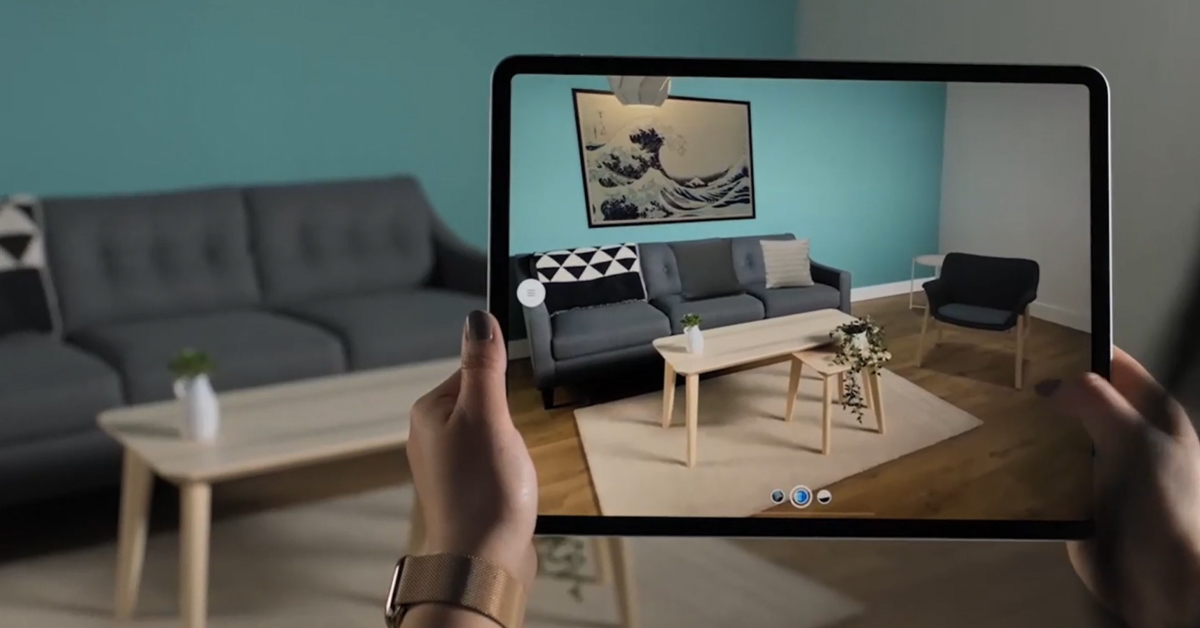

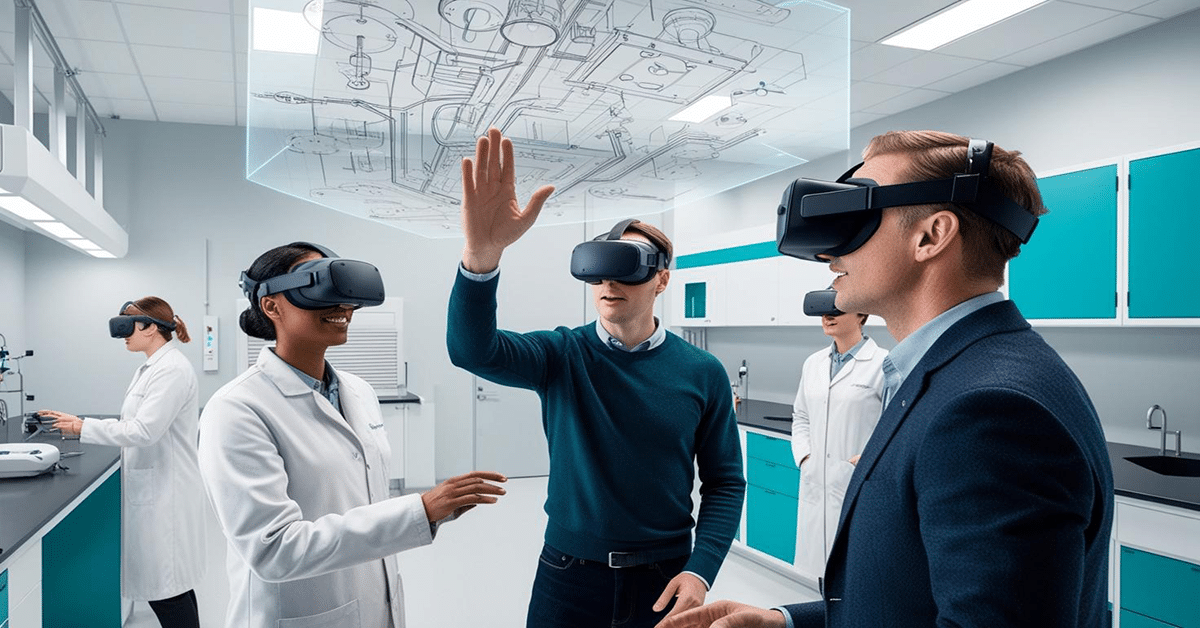





Leave A Comment